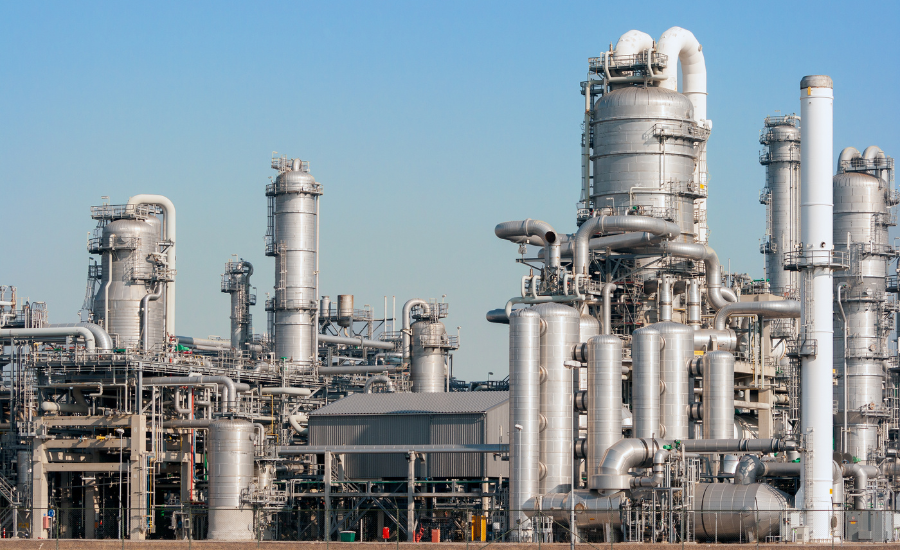In industrial operations where high pressure, extreme temperatures, and critical performance are part of everyday challenges, reliability isn’t optional—it’s essential. That’s where forged fittings come into play. These precision-engineered components are used to connect pipes, valves, and equipment in systems that must withstand intense mechanical and environmental stress.
Unlike cast or machined fittings, forged fittings are made by shaping metal under high pressure, resulting in a structure that’s denser, stronger, and more resistant to failure. Because of their exceptional durability, leak resistance, and pressure tolerance, they are the preferred choice across industries where safety and performance are non-negotiable.
Let’s take a closer look at the major industries that depend on forged fittings for their day-to-day operations.
Oil and Gas Industry: Perhaps the biggest user of forged fittings, the oil and gas sector operates under some of the harshest conditions imaginable. From offshore drilling rigs to onshore refineries, systems are constantly exposed to high pressure, corrosive fluids, and fluctuating temperatures. Forged fittings—such as elbows, tees, couplings, unions, and plugs—are critical for ensuring leak-proof and high-pressure connections in pipelines, compressors, and pressure vessels. Their ability to handle extreme stress minimizes the risk of leaks or equipment failures that could lead to costly downtime or environmental hazards.
Petrochemical and Chemical Processing: In chemical and petrochemical plants, fittings are exposed to reactive substances, acids, and high-temperature processes. These environments demand fittings that not only maintain mechanical integrity but also resist corrosion and chemical degradation. Forged fittings made from materials like stainless steel, duplex steel, or nickel alloys are ideal for these applications. They ensure safety, prevent contamination, and maintain continuous flow in systems transporting hazardous chemicals or gases.
Power Generation: Whether it’s thermal, nuclear, or hydroelectric, the power generation industry relies heavily on forged fittings for its piping networks and steam systems. These fittings are used in boilers, heat exchangers, turbines, and condensers, where the combination of high pressure and temperature could easily compromise weaker components. Forged fittings provide the mechanical strength and dimensional accuracy necessary to withstand the stress of continuous power plant operation—helping ensure efficiency and safety over the long term.
Shipbuilding and Marine Industry: Marine environments present unique challenges: saltwater corrosion, vibration, and high humidity. Forged fittings play a vital role in shipboard piping systems, fuel lines, and hydraulic mechanisms, where both strength and corrosion resistance are critical. Alloys like 316 stainless steel and Monel are frequently used for marine-grade forged fittings because they offer excellent resistance to saltwater corrosion and ensure long service life even in demanding offshore conditions.
Aerospace and Defense: In the aerospace and defense industries, precision and safety are paramount. Forged fittings are used in hydraulic systems, fuel delivery, and engine assemblies, where a single failure can have catastrophic consequences. These fittings are often made from high-strength alloys such as titanium, Inconel, or stainless steel, providing a combination of lightweight performance and unmatched durability under extreme conditions.
Pharmaceutical and Food Processing: While these industries may not deal with high pressure, they demand absolute cleanliness and corrosion resistance. Forged stainless steel fittings are used in sanitary piping systems to ensure contamination-free fluid transfer. Their smooth, non-porous surface finish helps maintain hygiene and complies with stringent FDA and GMP standards.
Water Treatment and Desalination: In water treatment facilities and desalination plants, fittings are exposed to chlorides, chemicals, and high water pressure. Forged fittings provide the robustness and corrosion resistance needed to ensure the reliability of these systems. Stainless steel and duplex steel fittings are common choices for such environments due to their superior performance in corrosive conditions.
Why Forged Fittings Are the Industry Standard
Across these sectors, forged fittings are preferred because they offer:
- High Strength: Withstand extreme pressures and temperatures.
- Leak Resistance: Provide secure connections critical for safety.
- Corrosion Resistance: Perform well in aggressive environments.
- Dimensional Accuracy: Ensure precise and reliable installations.
- Longevity: Require less maintenance and deliver longer service life.
Conclusion
From oil rigs to power plants and pharmaceutical facilities, forged fittings form the backbone of industrial safety and performance. Their unmatched strength, reliability, and ability to endure the toughest conditions make them indispensable across diverse sectors.
As global industries continue to prioritize efficiency and safety, the demand for high-quality forged fittings—particularly those manufactured to international standards in India—is only set to grow. Investing in these components isn’t just about durability—it’s about building systems you can trust.


